RIYADH: Saudi Arabia is working to complete large-scale projects that will allow Hajj and Umrah to take place safely in the exceptional circumstances created by the ongoing COVID-19 pandemic, King Salman said on Wednesday as he opened the eighth session of the Shoura Council
He added that the Kingdom had responded swiftly to the economic effects of the health crisis by implementing a number of initiatives and measures, the Saudi Press Agency reported. These include SR 218 billion ($58 billion) of support for the private sector and SR 47 billion for the health sector.
The contributions by the nation in support of international efforts to mitigate the global effects of the pandemic include the provision of medical aid and supplies to a number of countries, the king told the government’s top advisory body during a virtual session also attended by Crown Prince Mohammed bin Salman.
He also expressed his appreciation for the efforts of the public to slow the spread of the virus, saying: “I reiterate my thanks to my brothers, sisters, sons and daughters, citizens and residents, for their understanding and cooperation in adhering to measures and protocols.”
Turning to the oil industry, King Salman said that the Kingdom has been working to ensure the stability of global oil markets, and continues to do so in the interests of producers and consumers, despite the effect the pandemic is having on the sector. He noted that Saudi Arabia played a pivotal role in establishing and maintaining the OPEC+ agreement on this.
Looking ahead, the king said Saudi Vision 2030 is a road map for a better future for the country, and highlighted the effect it has already had on improving government services and raising the level of home ownership as examples of this.
He added that the empowerment of women is another important part of Vision 2030, along with the ongoing development of entertainment, sport and tourism in the Kingdom.
King Salman also reiterated the serious threat posed by the malign regional influence of the Iranian regime.
“The Kingdom stresses the dangers of Iran’s regional project, its interference in other countries, its fostering of terrorism, its fanning the flames of sectarianism … in its efforts to possess weapons of mass destruction,” he said as he addressed council members by videolink.
The international community must take a firm stance against the regime in Tehran, he added, and a radical solution is needed to ensure that Iran does not further develop its nuclear and ballistic missile programs.
The king also noted that Iranian-backed Houthi militias in Yemen continue to violate international laws through their actions in the country.
“We affirm the support of the Yemeni people so that Yemen can regain its sovereignty from Iran’s control,” he said. “We will continue to provide humanitarian aid to the Yemeni people.”
King Salman condemned the deliberate targeting by the Houthis of civilians in the Kingdom, using drones and ballistic missiles. He said Saudi Arabia rejects any attempts by outside forces to interfere in its internal affairs, as it also rejects extremism and terrorism, along with its financing.
“Our region is facing attempts by regional powers seeking to impose their political influence and spread their extremist ideology to serve their own interests,” he added.
Regarding events in the wider Middle East, the king said Saudi Arabia supports efforts to bring peace to the region through negotiations between the Palestinians and Israelis for a fair and permanent agreement. Saudi Arabia continues to support the right of the Palestinian people to have an independent state, with East Jerusalem as its capital, he added.
He also reaffirmed the Kingdom’s solidarity with Iraq and its people, and the efforts of the Iraqi government in its fight against terrorism. He said it also supports efforts to preserve the unity of Syria and remove militias and mercenaries from the country. King Salman called for an end to foreign interference in Libya’s affairs and stressed the importance of supporting Sudan at the present time.
With the G20 summit in Riyadh just 10 days away, he said Saudi Arabia’s presidency of the organization this year had confirmed the strength of its economy, which affects the stability of the global economy.
“During the G20 summit, we are looking forward to finding solutions to the pressing issues of the 21st century,” he added.
Closer to home, he said: “We are continuing with our approach to combating and eliminating corruption to preserve public money,” adding that the Kingdom will continue to release details of all corruption cases and investigations with full transparency.
King Salman addresses Saudi Shoura Council at opening of 8th session
https://arab.news/v88kh
King Salman addresses Saudi Shoura Council at opening of 8th session

- ‘Kingdom has responded swiftly to economic effects of coronavirus with a number of initiatives’
- ‘The international community must adopt a firm stance against the Iranian regime’
KSrelief provides food and shelter assistance in three Syrian cities

RIYADH: Saudi Arabia provided food, shelter and winter kits to the Syrian people through its aid agency, KSrelief, as part of several humanitarian missions across Syria.
The agency on Wednesday distributed bags of flour, winter kits and personal care kits to 132 families in the city of Al-Rastan in Homs, benefitting 626 individuals.
KSrelief also distributed food parcels and health kits to 1,455 families in the Afrin and Azaz regions in Aleppo, benefiting 8,730 individuals.
KSrelief on Thursday distributed 1,224 bags of flour, food baskets, personal care bags and shelter kits to 306 families in the city of Douma.
The efforts are part of Saudi Arabia’s ongoing commitment to deliver humanitarian assistance aimed at alleviating the suffering of the Syrian people.
KSrelief’s global humanitarian efforts continue

RIYADH: The King Salman Humanitarian Aid and Relief Center’s (KSrelief) humanitarian efforts continue for distressed families and individuals in need of support from basic food supplies to medical intervention.
In Sudan’s Gedaref State, Saudi Arabia’s aid agency handed out 1,117 boxes of dates to benefit 10,114 individuals displaced by the continuing conflict in the country.
In Mali’s city of Segou, KSrelief distributed 1,000 food parcels benefiting 5,600 individuals from the most vulnerable groups including internally displaced persons, widows, and people with special needs. The initiative is part of agency’s food-security support project in the country and the wider global community.
In Afghanistan’s Nangarhar Province, KSrelief turned over 276 shelter bags and 276 tents as part of the shelter project for returnees from Pakistan and those affected by the 2024 floods.
The ongoing initiative aims to distribute 4,882 various shelter materials such as tents, blankets, plastic mattresses and other basic shelter supplies in several cities in Afghanistan.
In Somalia, the national blood bank in Mogadishu – operated by KSrelief – managed to help 222 individuals in December.
In Jordan, another batch of Syrian refugees graduated from a KSrelief-run training and educational course being run at the Zaatari Refugee Camp. A total of 343 students received training on sewing, embroidery, handicrafts, culinary arts and painting. Remedial lessons were also given to elementary school students in subjects such as mathematics, Arabic and English, as well as a literacy course and Qur’anic studies.
Wild ghee production: Tradition of the Northern Borders region

- Wild ghee production peaks during the winter months due to high local demand
- Northern women showcase their ghee and other handicrafts at various festivals and national events
ARAR: In the Northern Borders region, women have long excelled in producing wild ghee, a staple deeply rooted in the local culture and closely tied to the region’s abundant livestock, estimated by the Ministry of Environment, Water and Agriculture to exceed 7 million cattle and camels.
Wild ghee production peaks during the winter months due to high local demand and is a key ingredient in many popular dishes, including porridge and festive meals.

Umm Nada, a local ghee producer, describes the multi-stage process: starting with milking, the milk is heated, boiled, slightly cooled, and mixed with a starter culture to transform it into “Khathir,” a traditional dairy product of naturally fermented or curdled milk similar to yogurt or kefir.
The mixture is then churned for over half an hour in a goatskin or sheepskin container called a “Samil.” After several days of mixing, the butter is melted over fire, turning into wild ghee, which is then stored in leather containers known as “Al-Nahw” or “Al-Dharf.”
Northern women showcase their ghee and other handicrafts at various festivals and national events, with the Arar market and the Lavender Hall, which provides training and development for local producers, serving as key venues for these traditional crafts.

Saudi nature reserve unveils winter retreat near historic Laynah village

- Laynah Camp, designed for nature lovers and desert enthusiasts, is located adjacent to the Al-Dahna Desert
- The initiative is part of the Darb Zubaydah Winter festival, which aims to promote sustainable ecotourism
RAFHA: A winter season retreat close the historic Laynah village in the Northern Borders Region is now open to holidaymakers.
Designed for nature lovers and desert enthusiasts, the wilderness retreat called Laynah Camp was unveiled this week by the Imam Turki Bin Abdullah Royal Nature Reserve Development Authority (ITBA) as part of the Darb Zubaydah Winter festival, which aims to promote sustainable ecotourism and preserve the region’s cultural and historical heritage.
Laynah Camp “offers a serene atmosphere where wildlife beauty blends with the desert’s charm, providing visitors with inspiring and adventurous moments,” a Saudi Press Agency (SPA) report enthused.

Nestled amid Al-Dahna Desert, the fully equipped tent accommodation units provide breathtaking views of the natural surroundings, the report added.
To spice up the camping experience, various activities are offered, including exploratory trips and upscale camping.
Laynah village itself has its own attractions, particularly its ancient water wells, which makes it one of the most important historical sites in the Kingdom.
In a previous SPA report, researcher and heritage and antiquities expert Abdulrahman bin Mohammed Al-Tuwaijri was quoted as saying Laynah village is known to be one of the oldest settlements in the Arabian Peninsula.
“Located on the ancient trade route between Najd and Iraq, it has throughout history provided traveling caravan convoys with respite from harsh desert conditions,” the report said.
How honeybees drive biodiversity and strengthen ecosystems in Saudi Arabia and beyond

- By protecting honeybees, the Imam Turki bin Abdullah Royal Reserve provides a boost for the sustainable honey industry
- This keystone species, essential for sustaining life on Earth, faces threats from climate change, habitat loss, pesticides, and disease
RIYADH: Beyond the manufacture of honey, honeybees are also guardians of biodiversity and strong ecosystems. As a keystone species, they support plant diversity by pollinating wildflowers and provide a welcome boost to agricultural productivity.
Although small in size, without these precious insects, cascading effects could destabilize entire food chains and habitats for countless organisms.
Recognizing their importance, Saudi Arabia has undertaken active conservation efforts, demonstrating the Kingdom’s commitment to sustainable beekeeping and the protection of these industrious insects.

Together with other pollinators such as birds and bats, bees are vital to global agriculture, contributing to 35 percent of the world’s crop production by pollinating 87 of 115 leading food crops, according to the Food and Agriculture Organization.
Honeybees help to maintain plant diversity by pollinating a wide range of species, preventing any single plant from dominating. This balance is crucial for ecosystem resilience, enabling them to better withstand environmental challenges such as climate change and invasive species.
Wildflowers, which rely heavily on honeybees for reproduction, play a key role in this balance. These flowers provide food and shelter for birds, insects and small mammals, creating a ripple effect that supports a diverse array of species throughout the ecosystem.
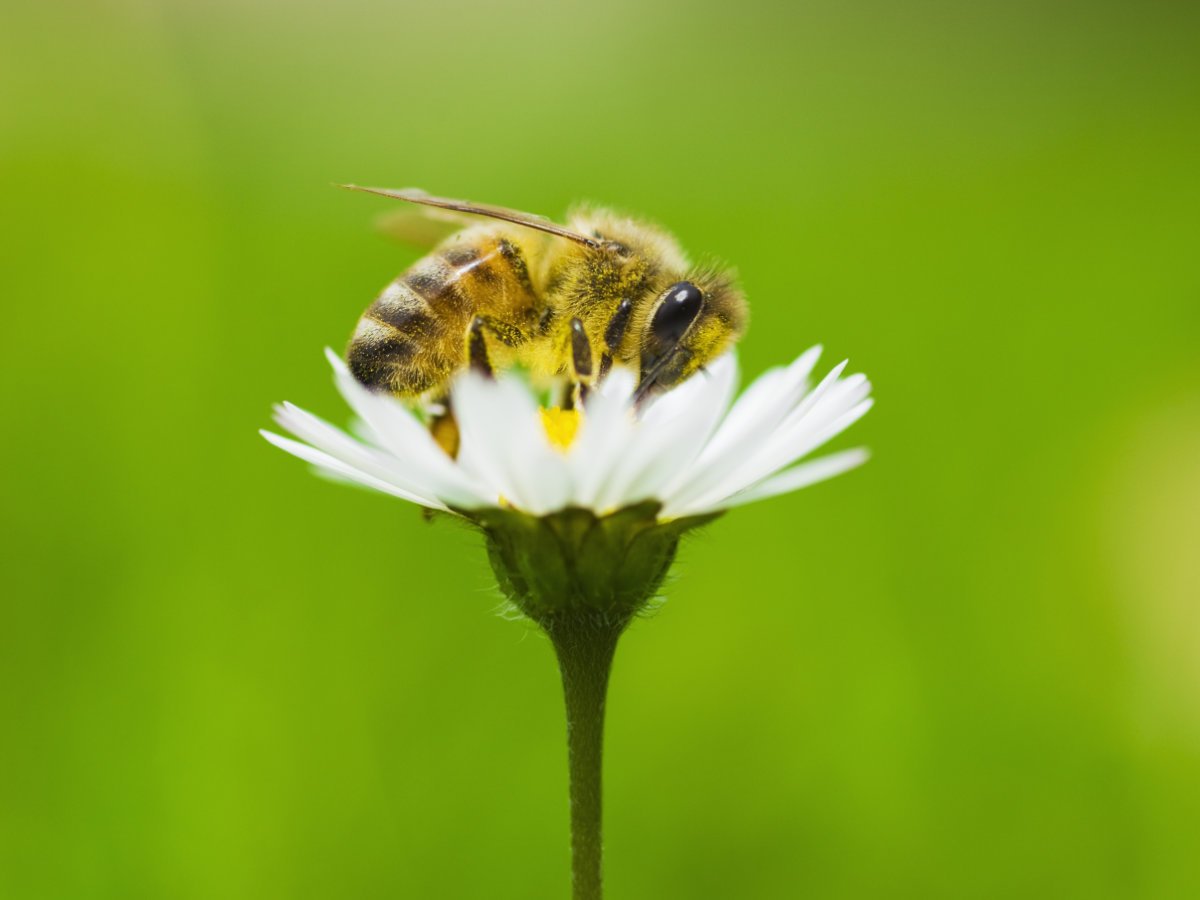
In Saudi Arabia, the Imam Turki bin Abdullah Royal Reserve hosts 25,737 beehives across 256 sites, fostering honeybee populations in a thriving and protected environment.
“The reserve provides a naturally protected environment rich in flowering plants, which serve as a primary source of nectar and pollen,” Abdulmajeed Al-Dhaban, a spokesperson for the reserve’s development authority, told Arab News.
“This ideal ecosystem enables bees to produce large quantities of high-quality honey, as well as other hive products like beeswax and royal jelly, which hold significant nutritional and economic value.”
Opinion
This section contains relevant reference points, placed in (Opinion field)
Thanks in part to the bees’ services, the reserve plays a vital role in enhancing the Kingdom’s food security.
“In addition to honey production, the reserve’s diverse ecosystem sustains natural pollination cycles,” Al-Dhaban said.
“This contributes to the productivity and quality of nearby cultivated crops and aligns with Saudi Arabia’s national efforts to achieve food security and self-sufficiency.”

Noting that pollination has a critical impact on the global food system, Al-Dhaban said bees are among the most efficient agents for transferring pollen between plants.
“This process not only enhances seed quality and density but also boosts agricultural crop production in terms of both quantity and quality,” he said. “Bee activity contributes directly to the production of honey, a valuable food product with significant health and economic benefits.”
Al-Dhaban also emphasized that honeybees are crucial for supporting food security and ensuring the long-term sustainability of natural resources.
This is particularly important as the reserve’s biodiversity creates an ideal environment for key Saudi crops, including acacia, Sidr trees and caper shrubs.
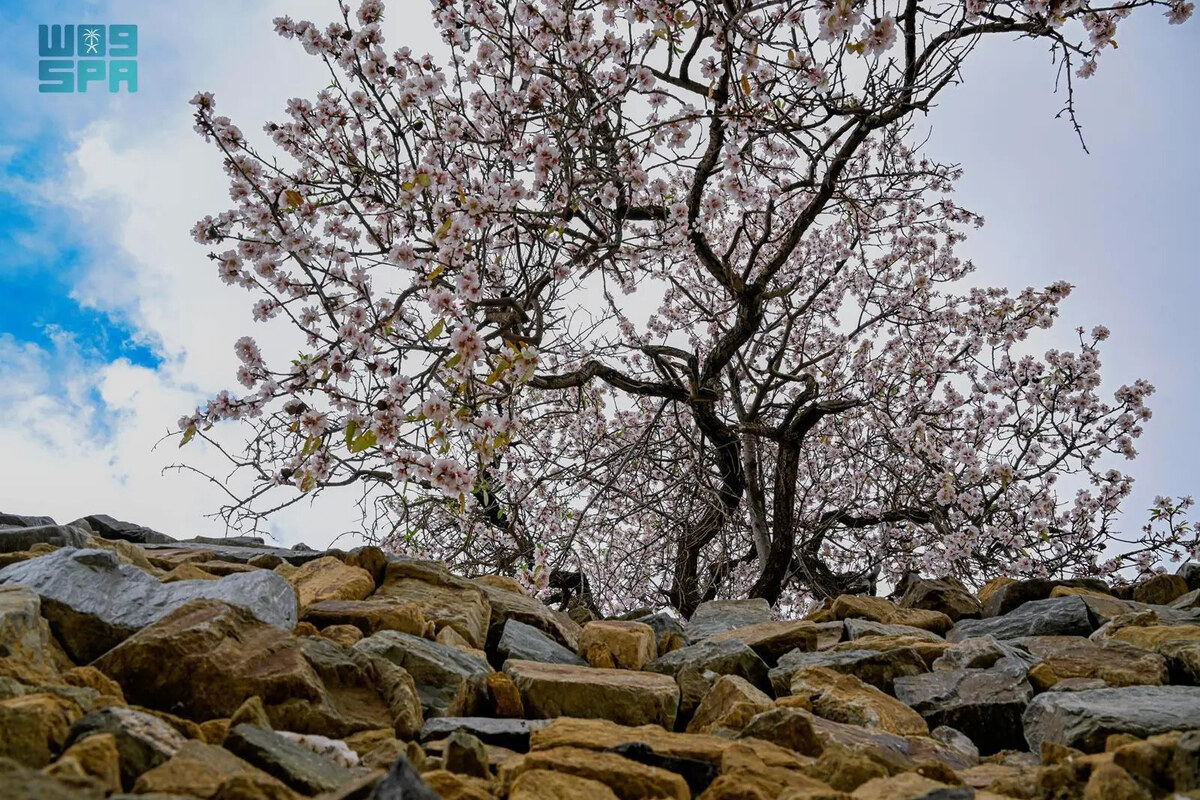
These plants benefit directly from bee pollination, which also increases the production of high-quality nectar for honey and other hive products. This natural cycle, Al-Dhaban said, supports local food supplies and strengthens the regional economy.
“By reducing reliance on imports and promoting local honey production, the reserve positions Saudi Arabia as a leader in sustainable honey sector development,” he said.
However, honeybee populations face serious threats, including climate change, habitat loss, pesticide use and disease.
To tackle this challenge, Mefleh Al-Jabreen, a beekeeper and owner of mobile apiaries at the Imam Turki bin Abdullah Royal Reserve, highlights the importance of selecting bee breeds that balance honey production and reproduction.
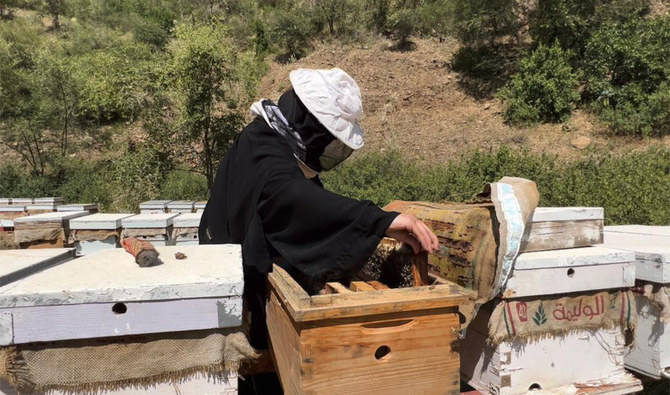
He told Arab News that his bees are transported to pastures rich in wild flowering trees, providing them with abundant nectar and pollen.
“We extract a specific amount of honey during gathering periods, leaving enough for the bees to sustain their hives,” he said.
Al-Jabreen explained that these sustainable practices help to maintain healthy honeybee populations while ensuring high-quality production.
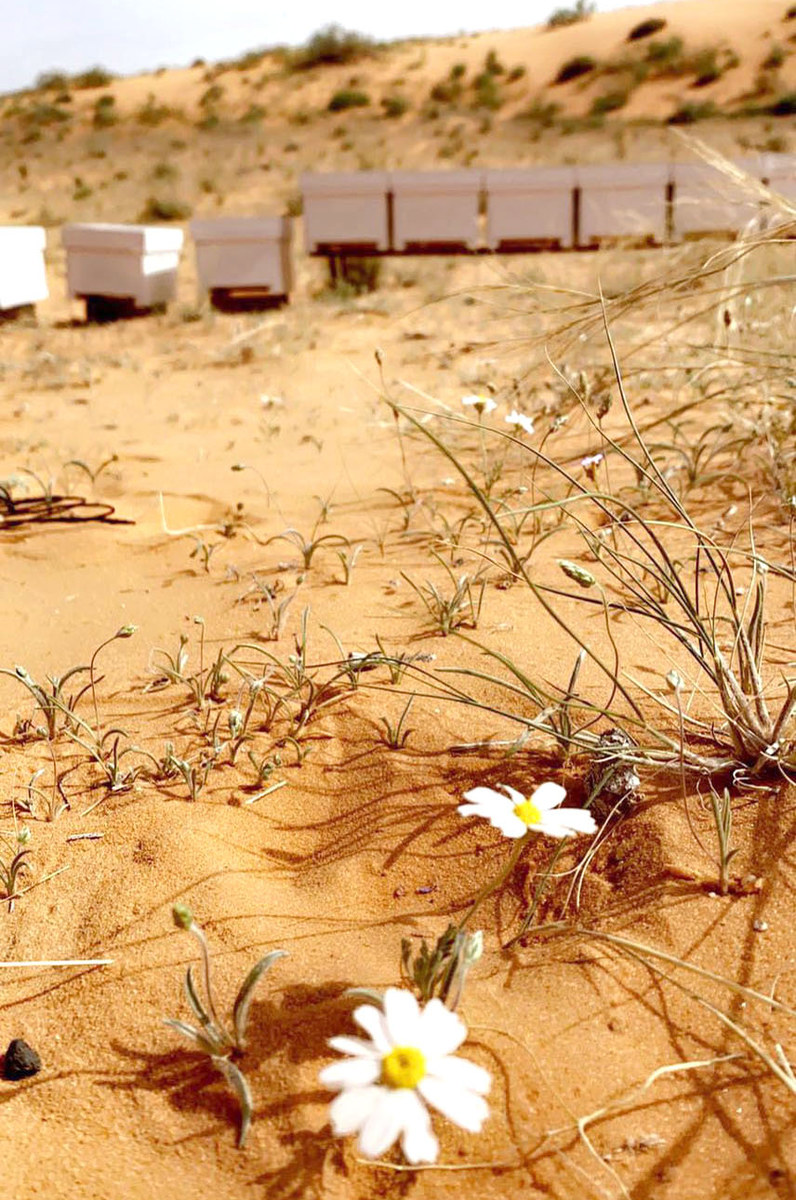
The reserve’s botanical diversity also supports the production of more than seven varieties of wild honey, many of which have earned international recognition for their quality.
Al-Jabreen also noted that the health of a hive largely depends on the queen bee. “A young, active queen laying eggs abundantly forms the foundation of a stable hive,” he said.
DID YOU KNOW?
• Crops, such as almonds and vanilla, are almost entirely dependent on honeybee pollination.
• Honeybee pollination prevents any single plant species from dominating, maintaining ecosystem balance.
• A young, active queen laying eggs abundantly forms the foundation of a stable hive.
He added that it is also crucial to monitor the number of worker bees and ensure the hive remains free of diseases and parasites, which can threaten colony stability and productivity.
Environmental challenges, such as extreme temperatures and unpredictable weather, pose significant threats to honeybee health, disrupting key hive processes such as honey production and reproduction.
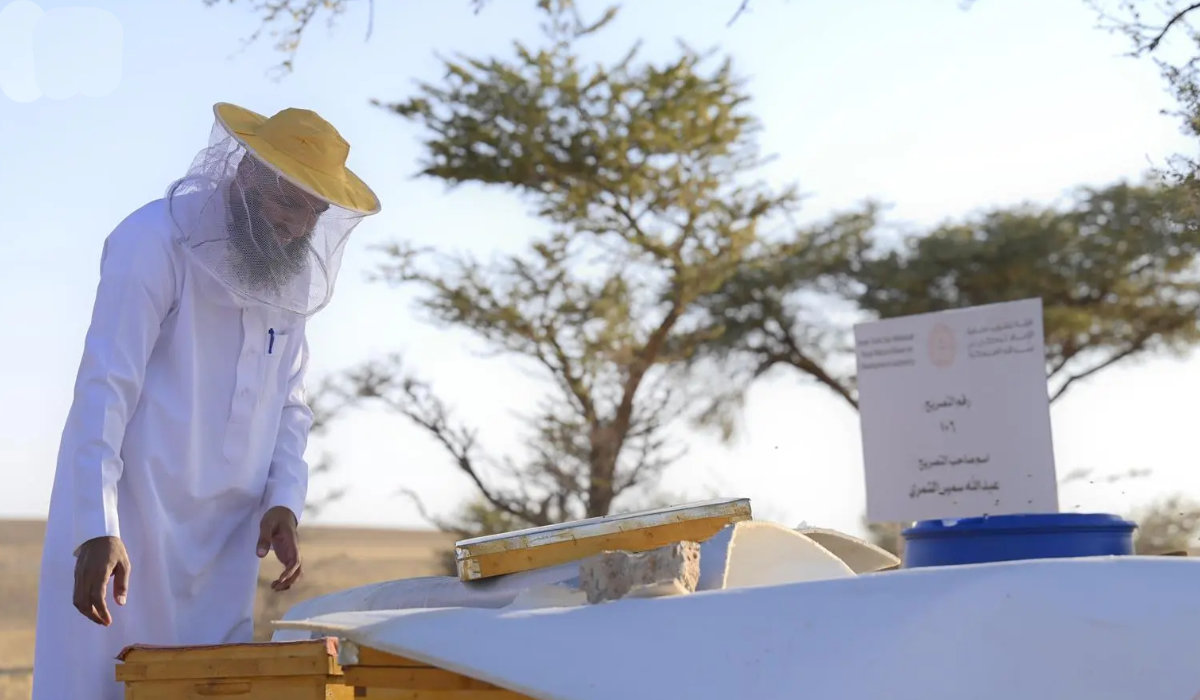
Al-Jabreen said that several factors must be considered when addressing these challenges: “These strategies include hive insulation, which helps reduce heat stress in extreme temperatures.”
Meanwhile, tree cover and shaded areas protect hives from direct sunlight during hot weather, while relocating hives to coastal regions in winter helps to keep bees active and productive.
“Windbreakers and hive relocation shield honeybees from strong winds and cold climates,” he added.
Al-Jabreen emphasized that plant diversity is essential for the survival of honeybees. “Bees are a vital part of the interconnected ecosystem, and their well-being depends on an abundance of floral and crop resources,” he said.
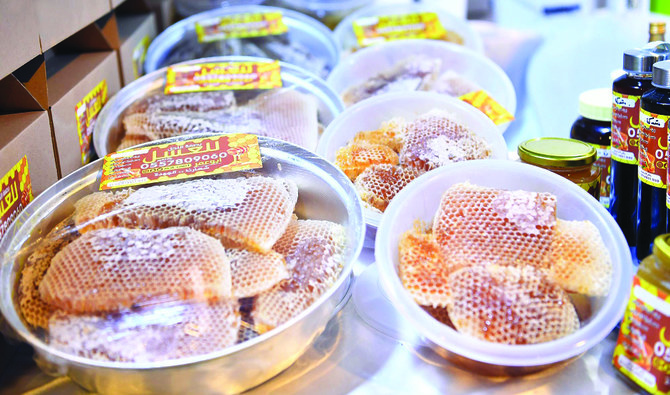
Recent innovations in beekeeping are helping to protect honeybee populations and enhance hive productivity. Al-Jabreen highlighted several key advances, such as special pollen-collecting boxes and bee breeds adapted to local climates.
He also hailed the growing collaboration between beekeepers and farmers. Organic farming practices, which avoid harmful chemicals, create safer environments for bees to thrive.
“We work with farmers to coordinate pesticide spraying schedules and relocate hives to safer areas,” Al-Jabreen said.
With growing threats to honeybee populations, governments, researchers and communities must prioritize their protection. Safeguarding these vital pollinators is key to ensuring a sustainable future for ecosystems, agriculture, and global food security.

























